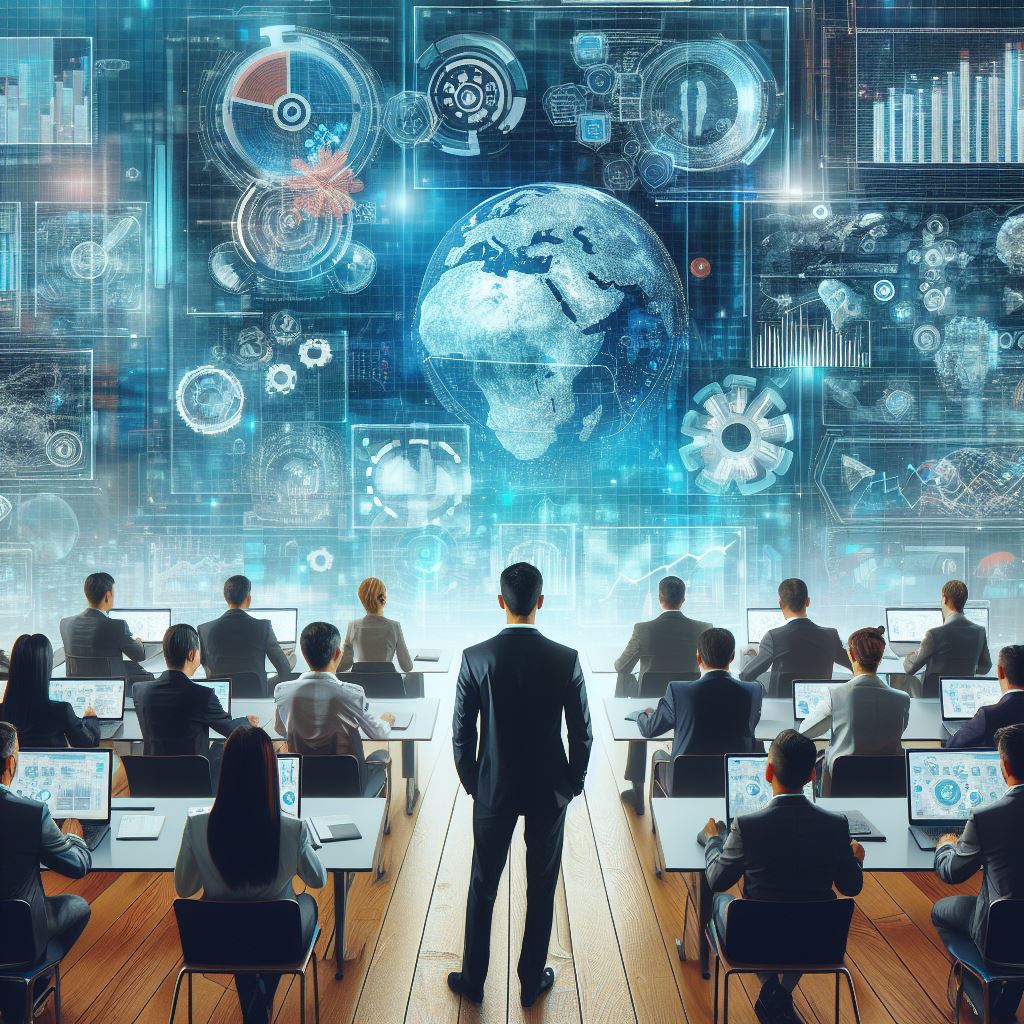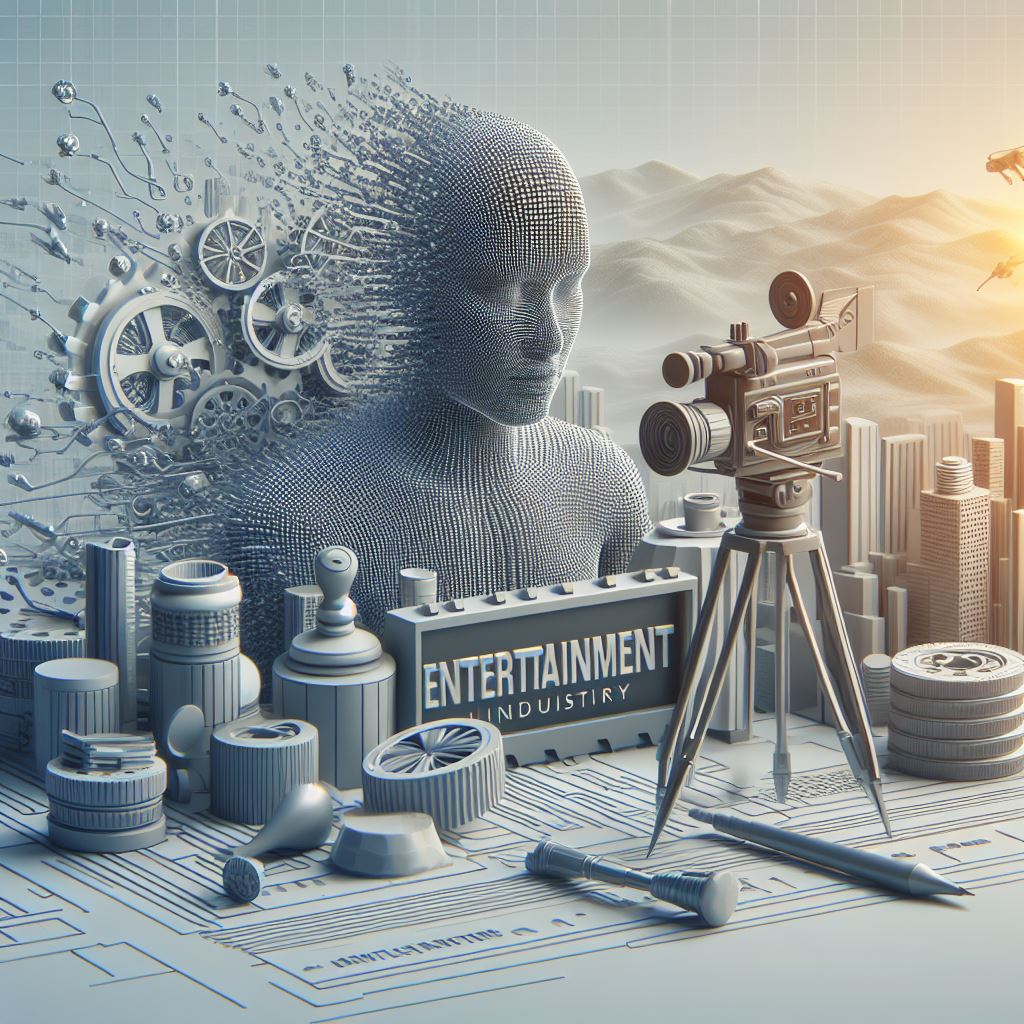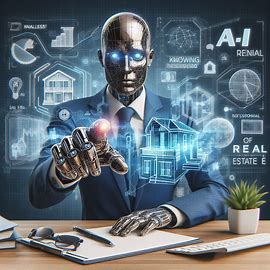Impact of AI Technology in Marketing and Advertisement Industry is changing with new strategies to attract more consumers
The development of artificial intelligence (AI) is nowadays and day rapidly changing how we live. AI is omnipresent now not only in our personal space but also every step we make.
Virtual assistants and self-driving cars are just a few examples of how AI is daily using in our lives. Now that Instagram has already had its influence on marketing and advertisement,
how can it affect the future of marketing and selling on Instagram?
In this blog post will see how AI, is now leading a revolution of Ai technology in marketing and advertisement sector. We will take a look at the ways in which it enlivens the customers’ experiences, helps businesses to better grasp their audience, and perpetually enhances their digital marketing strategies.
The Ai technology in marketing and advertisement reshapes in the ways marketing and advertising are conducted by providing them with more personalization, improved efficiency and rise in effectiveness rate. This brings us to the point.Marketing and advertising with the power of AI is a new exciting area, so let’s look into this more closely.
AI Technology in Marketing and Advertisement
 1.The business impact of AI Technology in Marketing & Advertisement Industry is discussed.
1.The business impact of AI Technology in Marketing & Advertisement Industry is discussed.
Artificial Intelligence (AI) is a new pride of business COs handling advertisement and marketing.
Thanks to AI’s capability to process enormous chunks of data on the fly and supply those insights in a jiffy, marketers can now get ahold of an extremely helpful tool to create their plans and campaigns with precision and make their audiences mind the ultimate goal.
AI, which does predictive analytics, personalized recommendations among others, indeed has the tendency to reinvent the marking environment thus driving impressive results for the small-scale companies to the big ones.
In the upcoming blog post, we will look how Ai technology in marketing and advertisement changes marketing and advertising and also how businesses can utilize this technology to unleash their leverages in highly competitive digital scenarios nowadays.[Ai technology in marketing and advertisement]
2.AI in the history of marketing
Artificial intelligence had quite a revolutionary path during its development and the invention of the possibility to use it in marketing. From simple automation tools, it gradually changed to become placed within the most advanced algorithms created at present: structured to be equitably capable of identification and make assessments in real time from large sets of customer data on their behavior and preferences.
As these AI technologies are poised to revolutionize how brands actively engage their customers from predictive analytics to recommendation engines, and now fully ready to create conversions. Marketers can now use personal campaigns that resonate with their target audience on a deeper level than ever before.
Some of the early success stories in marketing and advertisement, AI is bound to have a strengthening effect on this sector. With tools and strategies empowered by AI, one can pursue marketing with a given edge over others and explore various new opportunities for growth and success amid the all-transforming digital landscape.[Ai technology in marketing and advertisement]
3.How artificial intelligence is transforming customer segmentation and targeting

Ai Technology in marketing and advertisement totally changes the way businesses are going by now for customer segmentation and targeting. Gone are the days when marketing strategies were just generic and broad, trying to turn up a few interested customers by casting the widest possible net. AI makes it even more accurate for the companies and motivates personalized marketing concerning each consumer’s preferences and choices.
Since these are some of the works that an Artificial Intelligence algorithm can realize, big datasets would be well checked with patterns and trends that the human marketer failed to notice, and then decisions or choices have to be made. A further data-driven approach of defining the customer base is imperative as it becomes relatively easier for firms or business entities to slice the market whereby it becomes more grouped according to similar characteristics and likings of people. Armed with such deeper insight into their customers, businesses can drive tailor-made marketing campaigns for the best possible reception.
From the fact above, it becomes vivid that since Ai technology in marketing and advertisement is a potent tool in using predictive analytics, the organizations would more easily guess future requirements and behaviors of customers well in advance. That certainly enables the businesses to predict future prospective leads, trends, and smartly optimize their strategies for laying maximum efficacy on marketing by taking the assistance of AI-enabled algorithms. They can identify business patterns earlier than many of their rivals.
The application of AI in a nutshell means the application of an instrument providing a marketer with unprecedented insights into their audience and offering facilities to reach that audience. Adoption of Ai technology in marketing and advertisement thus means the unlocking of opportunities for driving significant growth and success for a business that is willing to make use of the potential offered to them on a platter.
4.Personalization at scale: AI-driven marketing strategies
Now, mass campaigns are tailored for individual consumption, and AI-powered marketing strategies put this into effect. When they are sent in standardized emails and push notifications, these types of outreaches are generic, unrelated to anybody else. Using AI, therefore, the messages they send will be better adjusted from a company to each consumer according to his preferences, behaviors, and past interactions with it.[Ai technology in marketing and advertisement]
AI algorithms do real-time analytics, helping to customize the content offered to each customer: from personal recommendations for products based on their prior purchases to targeted advertising.
It is to raise not just customer satisfaction and loyalty that these companies aspire, but also purchase behaviors and actualize revenues. If put in a position to churn out relevant, seasonable content, brands may be far-reaching in impacting purchase decisions made by consumers themselves and hence liked.
This is revealed through careful editing and proposals to potential clients, showing them the way in which AI can be crucial for personalized marketing strategies that help them stay ahead and bring to fruition the innate potential in all their efforts in Ai technology in marketing and advertisement.
5.Enhancing customer experience through AI-powered chatbots and virtual assistants
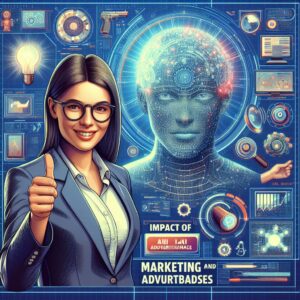
AI-based chatbots and virtual assistants are one of the best tools for enterprises to help in interactions that customers have within a business, i.e. overall experience that a customer attains while availing their services. Such intelligent systems offer instant and personified support in a way that users can engage with the brand seamlessly.
It facilitates human conversation with artificial algorithms, offering real-time help to customers by guiding them through most frequent queries, which would have been repetitive walk-throughs of purchase processes. Such chatbots are time-based constant services that increase efficiency and customer satisfaction, quickly landing on the right answers at the first go, as they get known for.[Ai technology in marketing and advertisement]
Moreover, virtual assistants strive for further augmentation with the inclusion of advanced AI technologies that can have a better understanding of a user’s preference and behavior. Virtual assistants have their designs made to offer recommendations, content specifically tailored for you, and proactive experiences from data and understanding of interactions necessary to create a truly one-to-one customer experience[Ai technology in marketing and advertisement].
Businesses can really make their current customer-interaction flows so much more efficient and impactful with AI-based chatbots and virtual assistants. They will empower a brand’s customer relations to flourish in loyalty, engagement, and churn out numbers concerning sales and revenues.
6. Predictive analytics and AI for improving marketing campaign performance
Ways in which predictive analytics and AI improve performance of a marketing campaign: In today’s ever-changing environment, the emergent use of predictive analytics and artificial intelligence has become mandatory in ways that can improve the performance level of a marketing campaign. Business can take advantage of getting firsthand information using advanced algorithms and machine-learning technologies about the behavior, preferences, and current market trends.
[Ai technology in marketing and advertisement]
Predictive analytics enables a marketer to foresee possible outcomes in the future through the study of historical data. From here, he can make a decision from data he uses and even customizes marketing strategies using this one. AI helps enable markets through its automation of some of the tasks that need to be handled, such as personalizing content to deliver great targeting messaging.
The company ensures its marketing campaigns work perfectly by predictive analytics integrated with AI capabilities, thus enabling the best targeting, improvement of customer segmentation, and real-time optimization. Ai technology in marketing and advertisement this is to help ensure the optimization of maximum possible ROI and the customers get the most relevant content up-to-date.
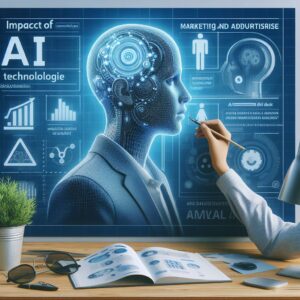
Nowadays, with an unfolding market and evolving time of consumer aspirations, enterprises can only remain in the competitive loop by implementing predictive analytical tools and AI technologies, enabling full potentials for their marketing and advertising effort. It helps create a more engagement-based and targeted campaign that impacts customers in a very personalized manner because automation, along with more precise targeting and the fine accuracy of data.
7.AI-driven content creation and optimization
In the business of marketing and advertising, perhaps no other technology has been breaking more new ground lately than the utilization of Artificial Intelligence (AI) for content generation and optimization. The focus primarily remains towards improved engagement with the consumers and efficiencies that deliver results.[Ai technology in marketing and advertisement]
With AI algorithms, it makes it easy to analyze a large dataset in a bid to understand customer behavior, preference trends, and more. From such analytics, therefore, firms can get many useful insights to enable them to build very personalized and targeted content with resonating abilities aimed at specific segments of your audience.
It is possible through machine learning and natural language processing capabilities that provide AI the power to create compelling, relevant content en masse. From creating social media posts to email campaigns, blog articles, or website copy, an AI tool will help streamline the content creation process and ensure uniformity in communication.
Besides, AI can be used for content optimization. The platform may also help in finding an optimal message that will best perform with a detailed real-time analysis and suggestions for it basing on the data compiled regarding successful and doomed cases of messages or parts of them, meaning texts or images.
Ai technology in marketing and advertisement will help firms create and optimize content across the most effective channels, which might drive into marketing and advertisement practice new forms of creativity, efficiency, and effectiveness.
8.Ethical considerations and challenges of AI in marketing
But, as the dominance of artificial intelligence is growing within marketing and advertising, it is also important to underscore that this new dimension has to be ethical too. A principal challenge comes from AI algorithms, operant in the abuse of consumer data. It thus should be transparent and consent-based in the customer information collection and usage so as to keep the trust and respect for privacy rights.
Their use also in connection to AI-facilitated personal marketing campaigns questions data protection and how the derived knowledge is put into application to pressurize consumer behavior. The boundary is thin between providing tailor-made experiences and crossing into invasion practices. It is going to be a trade-off between one-to-one marketing and privacy to ensure there are some ethical standards in the deployment of AI-driven marketing approaches.[Ai technology in marketing and advertisement]
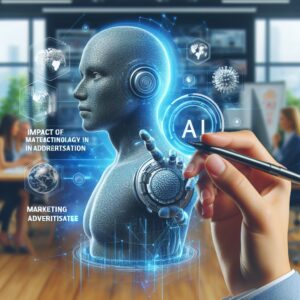
At the same time, bias and discrimination became some of the ethical challenges since AI algorithms risk embodying them. If not critically monitored and corrected, such algorithms may result in existing biases getting strengthened in probability; hence, the prospective customers from these particular demographics are not justly served. This means that marketers have a duty to specifically reduce bias and ensure that their AI systems’ campaigns serve each equally and with respect to diversity.
While AI offers many opportunities to change the face of marketing and advertising, there is a serious need for companies to weigh some of the many ethical considerations and challenges that precede its use. In fact, it is only through such clear transparency, considerations for privacy, and more fairness that marketers will use AI in ways that create value in their brand and customer relations from a responsible and ethical approach.
9. Case studies showcasing successful AI implementations in marketing and advertising
The case studies of Ai technology in marketing and advertisement successfully implemented with AI show real smart AI application examples, perfectly demonstrating how, on a worldwide level, artificial intelligence has offered breakthrough solutions to the industry. This study showed practices with the involvement of AI initiatives, and how this redefines the traditional way of doing marketing. [Ai technology in marketing and advertisement]
A really interesting case could be drawn from the largest e-commerce giant Amazon’s use of the AI-powered, personalized recommendation system. By extracting the pattern of consumption behavior from the transaction data at Amazon, it is being tracked down. Because Amazon bases its recommendations on individual customer behavioral patterns, it suggests for that individual products he or she may be interested in. This leaves great increases in both sales and customer satisfaction. This has definitely improved the user experience and current offering to customers.
There is another example that is even more provocative: Netflix and its AI-based content-optimization system. With the help of new and advanced algorithms, they are able to analyze viewer preferences and behaviors to deliver appropriate content suggestions that increase the intensity at which users are engaged and retained. This approach has allowed Netflix to create a totally hyper-personalized streaming experience.
More importantly, Ai technology in marketing and advertisement integration of AI has completely revolutionized programmatic advertising for the businesses. Indeed, giants like Google and Facebook have integrated the AI algorithms to present targeted ads to people grouped by interests and behaviors. This particular approach is, therefore, the most effective one which ensures that ads reach the right people in a bid to maximization the returns on investment for advertisers and conversions.[Ai technology in marketing and advertisement]
All these cases reinforce the understanding that Ai technology in marketing and advertisement are reinventing the space with innovative solutions in driving results and improving consumers’ shopping experience. The case studies have been good examples of how AI has become a driver for excellence in different sectors, markets, and provided increased potential in an industry where the growth has limitless bounds, thus bringing to light the unstoppable rise of artificial intelligence in shaping the future of marketing and advertising.
10.The future of AI technology in marketing and advertisement : emerging trends and opportunities.
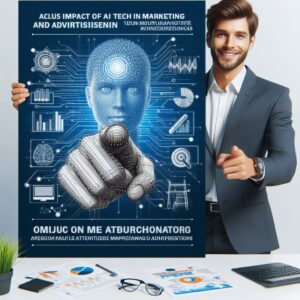
True to its nature, Ai technology in marketing and advertisement is bringing a revolution to the landscape of marketing and advertisement, with so many new trends and opportunities. One trend that has been most picked up, especially in volume, is AI-driven chatbots, used for customer service and engagement. They get smarter day by day and can now increasingly provide personalized customer interaction in real time to improve user experience and conversion.
What is even more exciting is that AI has made predictive analytics realizable in such a way that marketers could foresee customer behavior and preference with high precision. AI-based predictive analytics provide key insights via machine-learning algorithms that comb voluminous data to enable marketing strategists to tailor their strategies towards specific segments of the audience with relevant content, thus maximizing campaign success.
Moreover,Ai technology in marketing and advertisement ,programmatic advertising will help AI revolutionize ad delivery. Real-time optimization of AI algorithms makes it possible for ads to be visible at the right time and the right place in reaching out to the correct audience over the most effective medium. This kind of automation and optimization not just helps with improving campaign performance but also returns on investment for any advertiser.
With ever more advanced AI technologies, innovations in marketing and advertising promise to be no less. The technology is about to redefine content recommendation at the individual level and ad delivery that is—literally—designed by AI in the industry, thereby providing an opportunity for brands to actually help customers receive such goods in very new ways. New tendencies will be key for players to stay ahead in a more competitive and data-driven marketplace.[Ai technology in marketing and advertisement]

